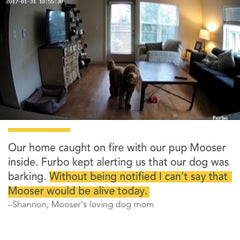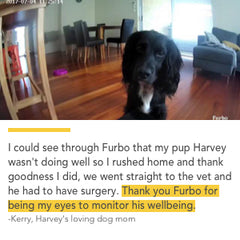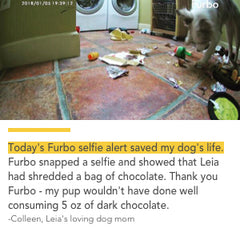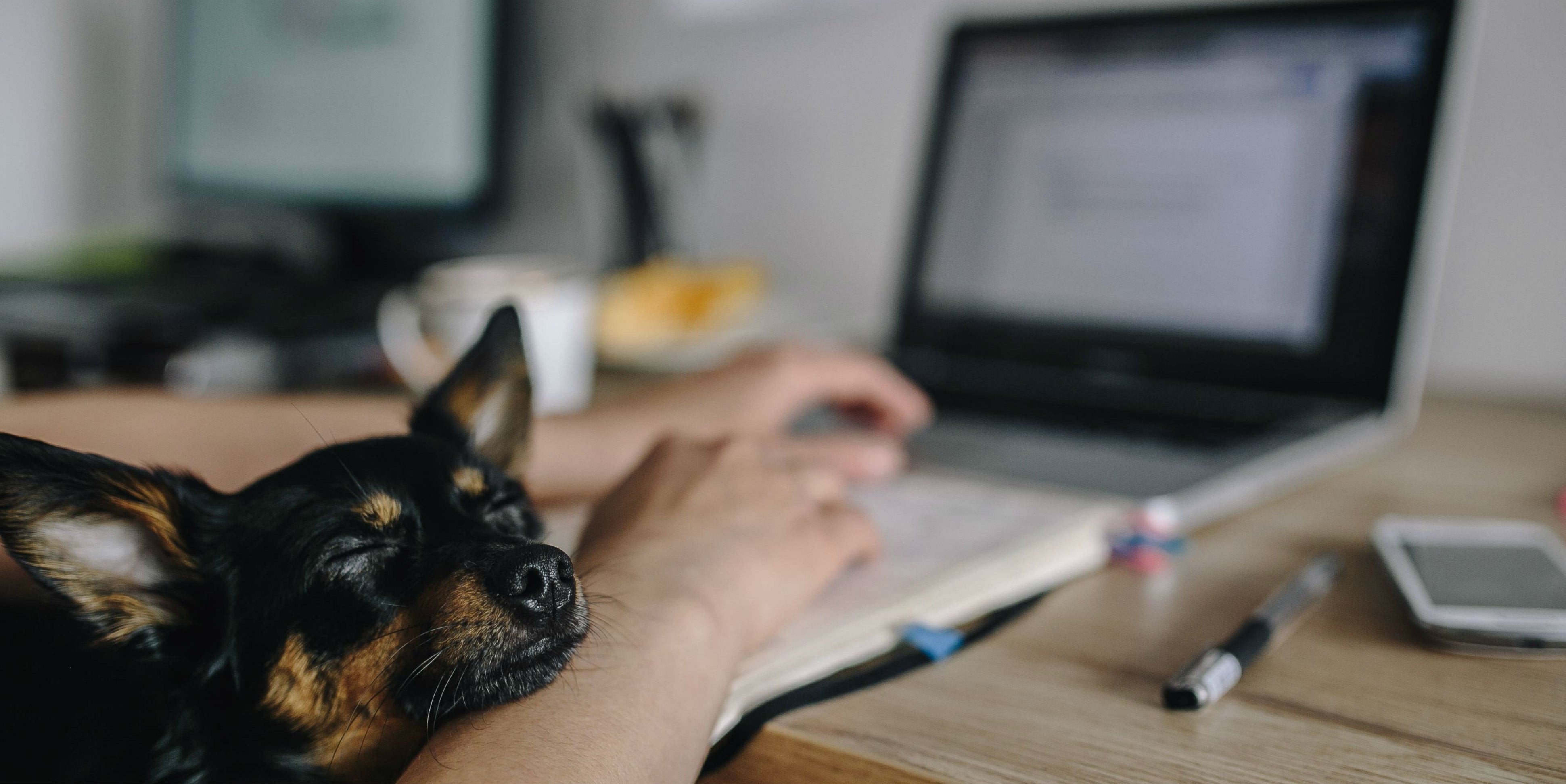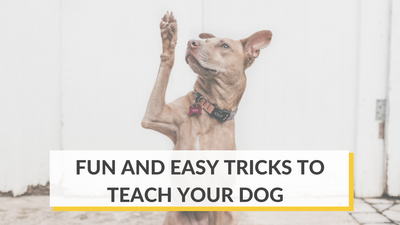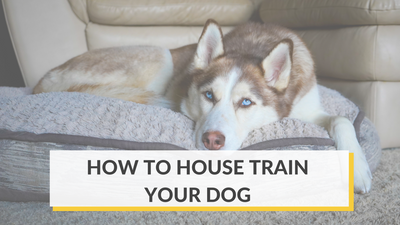Puppyhood is one of the most challenging times for dog parents. You’re adjusting to the new demands on your attention, your puppy is trying to acclimate to a brand new and somewhat alien environment…it’s exciting, it’s fun, and it’s exhausting. Couple these changes with the fact that you are raising a puppy when you work full time and it can start to seem overwhelming.
Related Post: Who's a Good Dog! 9 Best "Home Alone" Dog Breeds
Fortunately working full time and raising a puppy is a well-travelled road and there is plenty of advice available from those who have walked in your shoes. First, let’s cover the basics:
Create a Space For Your Puppy
One of the most important things that a new puppy parent can do is to provide him with a sense of security. This starts with giving him his own space, around 6X4 feet is ideal. Many people use a puppy-pen but you can use a small room, like your bathroom, as well. If possible, it’s best to give him a space that you can gradually expand, an area that will be his for the long term. If you want to use just a portion of a room or a room without a door, it may be a good idea to invest in a puppy gate. Many are designed to be just as aesthetically pleasing as the rest of your home.
The space should also be puppy-proofed. Think like a first-time parent and look for the same hazards a toddler might get into. Make sure small choking hazards are picked up. You'll also want to put plastic covers over outlets and be certain there are no wires your pup can get a hold of. If you keep any food in your puppy's space, keep it well sealed or out of reach — like in a cabinet.
You may also want to secure knobs as inquisitive dogs follow their noses into unexpected places when unsupervised. A good rule of thumb is to ask yourself if your pup will be okay if he chews an item left in his space. If the answer is no, make sure it's out of reach.
Have a Crate for Your Dog's Space
Another option many dog parents use is crate training. As long as the crate is not used as a source of punishment, your pooch will begin to have positive feelings about this space, even viewing it as his personal den. You should never leave your puppy in a crate for very long stretches, but crate training is an excellent option for working pup parents.
You'll also want to make sure your puppy's space or his crate has a few essentials that will keep him happy while you're away, such as:
- A comfortable bed
- A few toys
- Something with your scent on it — old clothing works great
- Food and water
- A puppy pad if you're using this for house training
Set a Regular Routine
Dogs of all ages like a predictable schedule and puppies in particular need stability. The fewer surprises the better. Try to keep mealtimes, walks and bedtime consistent, and try to drop in at least once a day while you’re working. If your work is close by, you can come home during your lunch break. This will give your pup a much needed potty break and some cuddle time. If you can't get away, you may want to hire a dog walker or pet sitter who can take your pooch out and play with him. Even a kindly neighbor might be a good option for letting your dog outside for a break in the middle of the day.
You also may want to consider investing in a system like Furbo. It’s popular with working puppy parents because it allows you to see him, speak to him and even throw him an occasional treat! Plus, if there's an emergency, you'll be the first to know, so you can rush home to be with your pup.
Leaving Your Puppy Alone During The Day
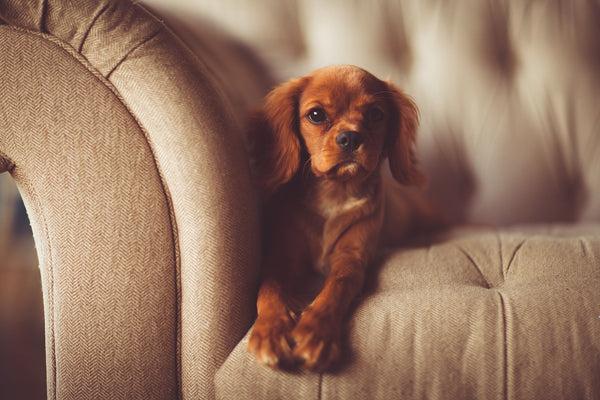
The general consensus for leaving a puppy alone during the day is one hour for every month old they are. For example, a two-month-old puppy will rarely be capable of holding his bladder for more than two hours, a three-month-old for three…etc. Clearly, this is a generalization, but it’s a good starting point to help you build your new dog-friendly schedule. The younger your pup is, the more you'll have to drop in or have someone else check up on him.
Puppy pads are a common backup plan for new puppy parents and it won’t hurt to lay some down in his area. Just don’t be too surprised if your puppy sees them as a fun thing to shred rather than a place to relieve himself!
Related Post: Secret Life of Dogs — 7 Things Dog Does When They Are Home Alone
House Train a Puppy When You Work Full Time
Small things count during your puppy’s first few months and good housetraining is really just a set of small calculated steps. In other words, don’t get caught up searching for new theories on how to housetrain your puppy! When you work full time your schedule will dictate the rules. Here are some tips that may help you house train your pup even when you're away at work all day:
Related post: 5 Types of Dog Owners Who Need A Dog Camera the Most
- Leave extra time: First and foremost plan to get up a minimum of ½ hour before you did in your pre-puppy days which will give you a chance to take him on a quick walk and then get in a little bit of that oh-so-essential playtime. You’ll need to save a few extra minutes for a last potty break once you’re ready to leave for the morning as well.
- Ensure plenty of playtime before you go: Playtime not only creates bonding between you and your puppy, but it also ensures he is good and tired before you head out the door. Hopefully, he'll be snoozing away as you go, leaving you plenty of time before he'll need to be checked in on.
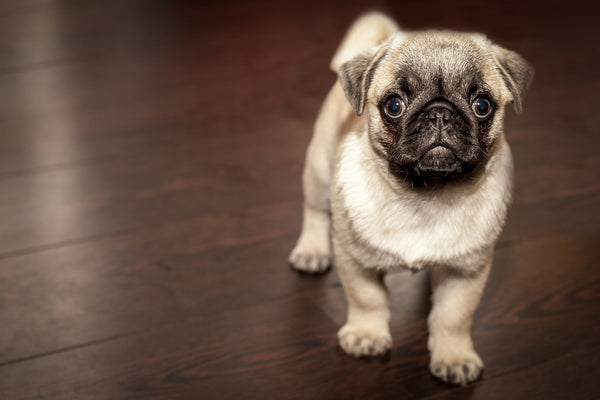
- Make a Smooth Getaway: Next is an often neglected but always crucial step in housetraining - Leave quietly without making any lavish displays of affection. Challenging I know, but the less emphasis placed on your departures and arrivals the happier and better adjusted your puppy will be. It’s a life-long habit that you should try to form early as it not only cuts down on accidents it cuts down on separation anxiety, which is the most common root of behavioral disorders in dogs.
- Keep your puppy occupied: A variety of toys and pre-prepared games and treats are a great way to keep your pup busy while you're at work. This will keep him occupied and less likely to have an accident.
- Comfort breaks: Depending on how old your pup is, you will need to plan on giving your pup comfort breaks during the day. These are opportunities for him to relieve himself as well as get some much-needed love. If your young dog is left too long, he'll have a lot of accidents which could lead to your dog remaining untrained. If you can't come home to let your dog out, think about having a friend or family member do it.
Anticipate Accidents
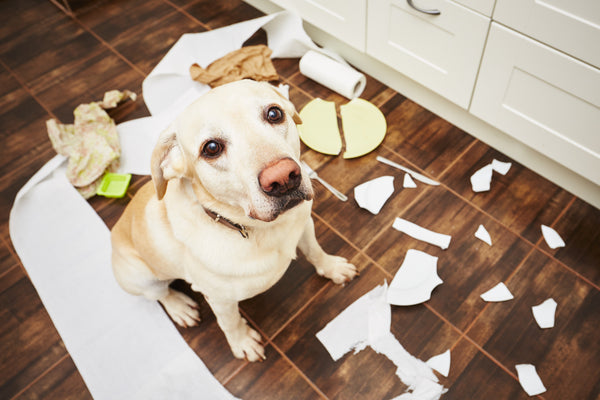
Accidents will happen often, particularly in the first six to eight weeks. It is also fairly common for puppies to experience periods of regression in their housetraining when they are left alone on a regular basis. Planning for these things helps reduce the stress level for you and for your puppy. Keep your cleaning supplies well-stocked and remember that most puppies will have a natural desire to avoid soiling their own areas, but a tiny bladder can only last for so long!
How you raise your puppy when you work full time can have a major impact on quality of life for both of you, it pays to start things off right.
Related Post:
How to Keep Your Dog Safe When Home Alone
How to Find a Good Dog Sitter? - 5 Things to Consider
Real Life Furbo Testimonials:
